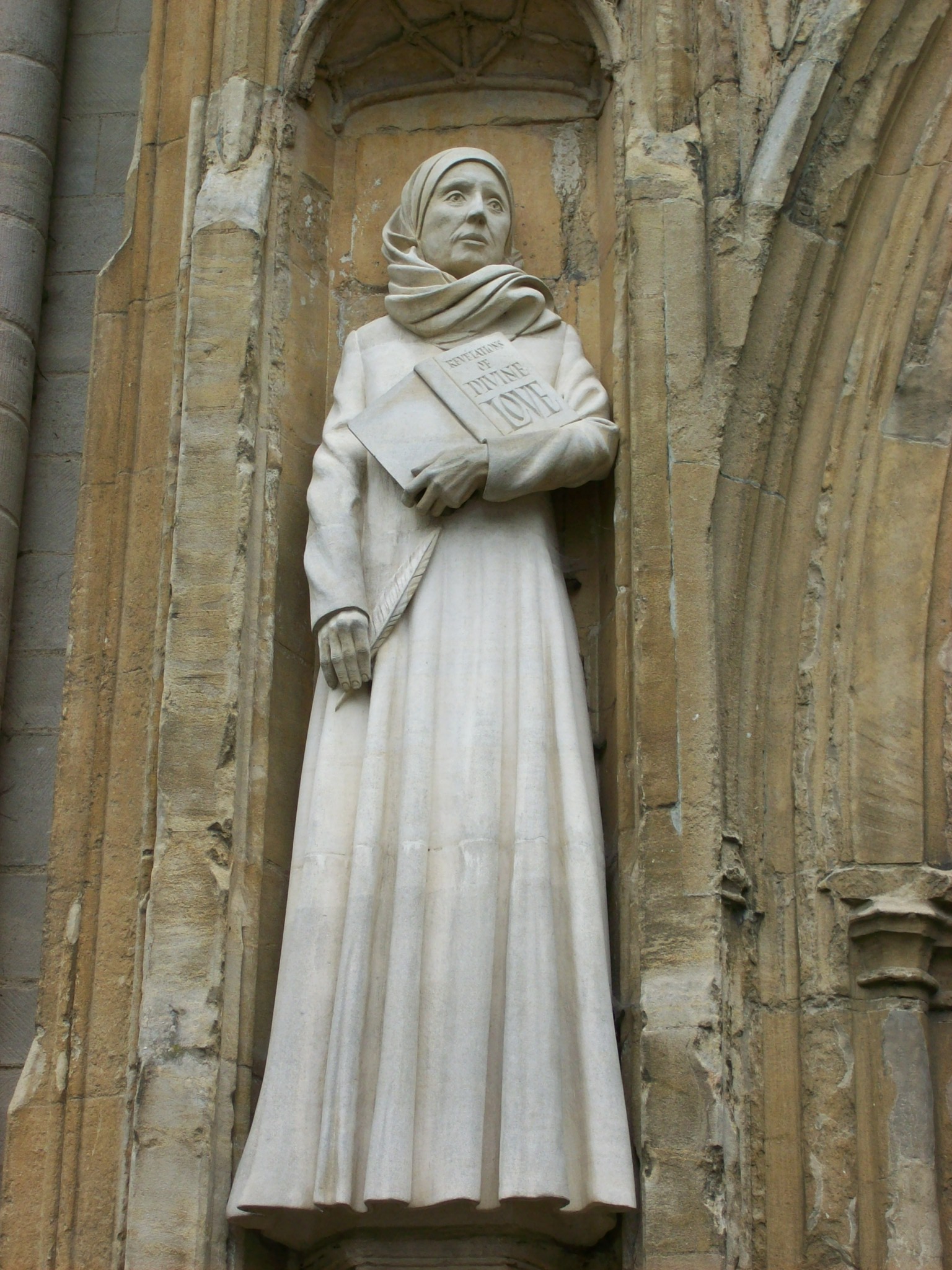Juliana de Norwich Frases y Citas
Juliana de Norwich: Frases en inglés
The First Revelation, Chapter 7
The Sixteenth Revelation, Chapter 74
The Eighth Revelation, Chapter 21
Summations, Chapter 61
The Ninth Revelation, Chapter 22
The Thirteenth Revelation, Chapter 33
The Sixteenth Revelation, Chapter 78
The Ninth Revelation, Chapter 23
The Thirteenth Revelation, Chapter 35
The Third Revelation, Chapter 11
The Ninth Revelation, Chapter 22
The Eighth Revelation, Chapter 21
The Eighth Revelation, Chapter 18
The Sixteenth Revelation, Chapter 69
The First Revelation, Chapter 9
Summations, Chapter 52
The Fourth Revelation, Chapter 12
The Eighth Revelation, Chapter 17
The Thirteenth Revelation, Chapter 32
Hold thee therein and thou shalt learn and know more in the same. But thou shalt never know nor learn therein other thing without end. Thus was I learned that Love was our Lord’s meaning.
The Sixteenth Revelation, Chapter 86
The Sixteenth Revelation, Chapter 74
That dread that maketh us hastily to flee from all that is not good and fall into our Lord’s breast, as the Child into the Mother’s bosom, with all our intent and with all our mind, knowing our feebleness and our great need, knowing His everlasting goodness and His blissful love, only seeking to Him for salvation, cleaving to with sure trust: that dread that bringeth us into this working, it is natural, gracious, good and true. And all that is contrary to this, either it is wrong, or it is mingled with wrong. Then is this the remedy, to know them both and refuse the wrong.
The Sixteenth Revelation, Chapter 74
The second manner of Cheer is Ruth and Compassion: and this sheweth He, with sureness of Keeping, to all His lovers that betake them to His mercy. The third is the Blissful Cheer, as it shall be without end: and this was oftenest and longest-continued.
The Sixteenth Revelation, Chapter 71
This was said not only for that same time, but also to set thereupon the ground of my faith when He saith anon following: But take it, believe it, and keep thee therein and comfort thee therewith and trust thou thereto; and thou shalt not be overcome.
The Sixteenth Revelation, Chapter 70
The Sixteenth Revelation, Chapter 68
